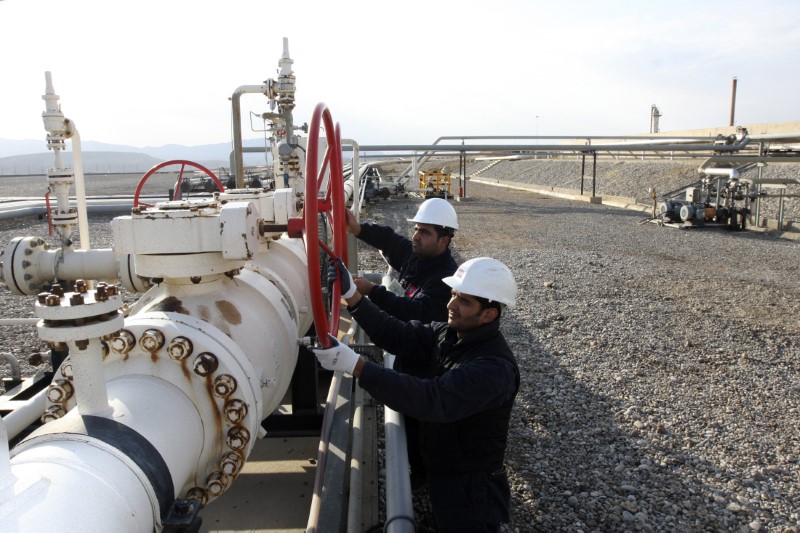(This March 12 story corrects typographical error in the third paragraph, and spelling of Parsley in the fourth and seventh paragraphs. The errors also occurred in a previous version of this story.)
By Arathy S Nair and Liz Hampton
BENGALURU/DENVER (Reuters) - U.S. shale producers are seeking sharp service costs cuts to deal with plummeting prices and shrinking demand, according to executives and a letter sent to top providers, driving home the oil industry's desperate efforts to cope with a market dive.
Oil companies that recently delivered 2020 spending plans based on $55 to $65 a barrel oil were confronted on Monday with sub-$35 prices after OPEC launched a price war amid slack demand from the ravages of coronavirus on the global economy.
Prices have plummeted so rapidly and to such an extent that shale producers that have not pre-sold their output at higher prices will soon be unprofitable, said analysts.
In a letter sent on Wednesday to oilfield equipment and service providers, Parsley Energy (N:PE) operating chief David Dell-Osso asked them "to reconsider your pricing" and help the company achieve an "at least 25%" reduction in its costs.
This week's oil market crash, brought on by weakening demand from coronavirus and a price war triggered by Saudi Arabia and other big producers pumping full bore, are behind the urgent plea, Dell-Osso said.
Parsley did not respond to a request for comment.
Parsley on Monday was among the first oil companies to disclose a big reduction in spending plans, saying it will halt a fifth of its 15 drilling rigs by April.
Oilfield services executives expressed displeasure with the requests, saying many companies are barely profitable at current service rates.
"Anyone dumb enough to ask for discount today is a (expletive)," said a drilling executive who did not want to be identified.
But several oil producers have been asking for 25% price cuts and have won concessions, said James West, a senior managing director at investment bank Evercore ISI.
West, who has urged consolidation to wring out costs, said oilfield firms would be better off rejecting contracts that are not profitable. Pricing is low, and a 25% cut may not deliver much relief, he added.
"We had already given price concessions to protect market share, so we're running close to break even in North America before the oil price crash," Ian Bryant, chief executive of services provider Packers Plus Energy Services Inc, said earlier this week.
Some oilfield firms have moved to lower their own costs. At Liberty Oilfield Services (N:LBRT), which provides well completion services, executives agreed to take a 20% pay cut.
Oilfield service firms "have been subsidizing E&Ps for the past few years, and were just getting by," said Robert Callaway, CEO of Range Valuation Services. "There are going to be a lot of companies that have a hard time surviving."
